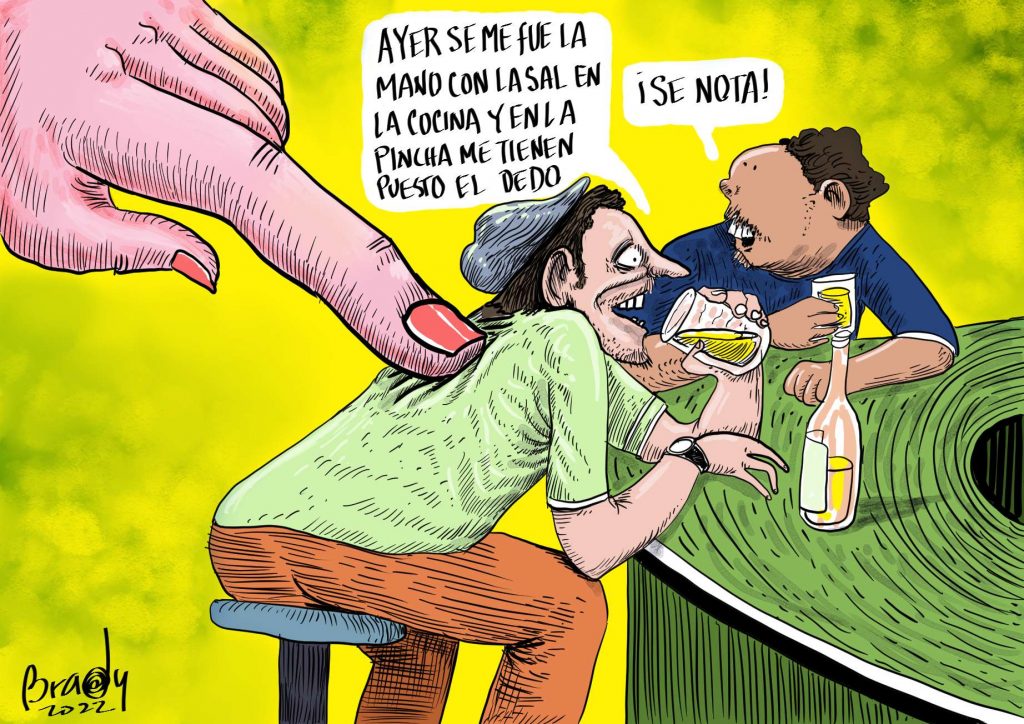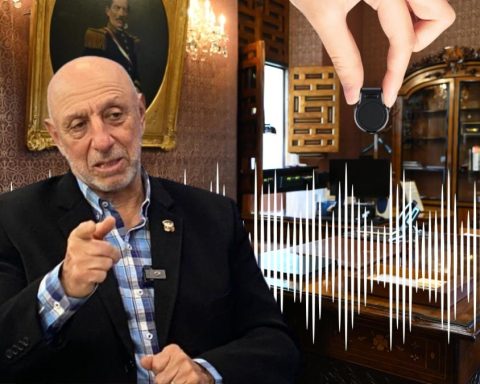Since we mentioned the extremities, let’s not forget that from one end to the other, the region that goes from the shoulder to the elbow, and from there to the arm through the hand, constitutes one of the areas of the body that facilitates expressions the most: having, for example , “a shoulder to cry on”, is a sign of those who lend themselves to tears; You can also carry the entire weight of something (the house, a relationship, raising your children, etc.) “on your shoulders” and it is a sign of solitary effort, of sacrifice; and if a situation or context is said to be “up your sleeve”, it means that there is no order or concert, which is called “a mess”. The arm is a sign of strength: “do not give up” is a sign of those who persist in their argument or reason, while “fighting to the sword” is fighting with anger and visible commitment in the performance of an action or task. Likewise, it is a sign of greed or stinginess to say of a person that they “walk with their elbows.”
We left our mouths! Round trip paths between the body and the language (I)
Particularly productive in terms of phrases is the hand and its members: fingers and nails. “Get a hand”, for example, can mean several things between us: to do something, start a job, establish a sexual or loving relationship; however, “put the hands”, can refer to stealing or, on the other hand, meddling, meddling in a matter. If you can have a “face to face” meeting, a “one on one” discussion is also possible. If you want to have the real magnitude of a problem or situation, you have to “go and touch it with your hand”, a metaphorical gesture that implies valuing concrete reality. Before, the parents of the fiancée were visited to “ask for the hand” in marriage. You buy a “hand of bananas” and whoever we silence with solid arguments in a discussion we give “a cookie without a hand.” An excess, a bad answer, are corrected with “you lost your hand” and whoever needs help, we can “give a hand”, although “give a hand” to something also means stealing, misappropriating a property, or making use of random of something Finally, if an argument takes the path of brute force, the disputants are said to have “come to blows.”
The finger, on the other hand, has gained a peculiar relevance in recent years. It was usual to find it as a variant of measurement for liquids in “give me a finger of water”, and also to measure intellectual capacity in formulas such as “anyone with half a brain knows it”. The older ones used to use a humorous phrase for what was perfectly adjusted to a situation or a size of clothing: “like a finger in the ass.”
However, today the finger is a recurring symbol of insistence, annoyance, anger: when it is claimed under the argument of “take away my god”, it is pointed out to those who persist in marking us negatively. Of that someone we say that “he has the god Market Stall”. Furthermore, we cannot “give him a finger” to someone who is very confident.
Arriving at the other end of the arm we find the nails, an image either of fierceness or of last resort. You can defend a cause or space “with tooth and nail” and, if a desire or need is not satisfied, then “they leave it to us.”
Leaving behind the upper extremities we arrive at the torso. Who hasn’t heard phrases like “what’s done, chest” or “put your chest into the situation”? The chest is part of the body that comes forward, that stands in front, that represents us, but also the place where we keep affection and love. Thus, we can take something “very to heart” if we exaggerate or overstate a conflict or problem; or be “disgusted” by a love failure. Acting with “spite” or because of it, is spiteful behavior and a sign of someone who does not forget. Mothers breastfeed their children (breastfeeding) and if we do something voluntarily and surrender, or without the necessary means, then we do it “at breast”.
Further down, we find our navel, which can be guilty of wanting to be “the navel of the world.” And very close to him the hip, which reminds our parents how to “get the stray” on the waist.
Turning 180 degrees we find ourselves with a generous source of metaphors: the behind, the buttock, the ass. Being a “pest ass”, let’s say, means indistinctly being very small and not having the age to give an opinion on adult issues, not being suitable for carrying out a task, or being an unimportant person. A less temporary but very defining state is enclosed in “being an ass”, which defines the person as bad, unfaithful, treacherous, low, etc. Leaving or falling on your ass can be the direction of movement, but also persisting in an argument, stubborn in a criterion or behavior: “he falls on his ass saying that he did not do it.” If we are asked to move our butts, this can indicate either that we hurry up or that we move to the side if we were sitting down.
Very common phrases are “everyone makes a drum out of their ass”, in defense of free will; “what ass does the cockroach sit on”, for those who lack the means to achieve a goal; “stick your tongue up your ass” or where the sun does not shine, if your own arguments have been embarrassingly defeated; or “fuck your ass with the door”, when a result or situation arises contrary to what was expected. Today it is also common to hear the “hours/buttock” as a measure of non-measurable time, indicative of someone who has had to invest time in study, research or the achievement of an intellectual enterprise.
Arriving at the lower extremity, it is time to “put one knee on the ground”, consolidate ourselves in the position and continue the journey down the body. Another sign of security in the position consists of asking for something “on your knees”, which in case of marriage indicates devotion, but in conflictive situations it implies supplication.
Very creative are some solutions for the feet, and their popular lexical alternative: the legs. “Put your foot in”, when foot is replaceable by “leg”, indicates that an error has been made; but in the event that it is not comparable, “putting your foot in” is an indicator of someone who tries to force something in their favor or obtain a benefit before others through the use of force. “To cast a foot” is to run; “to give foot” indicates that the water does not completely cover our bodies; “take your foot out” is to leave someone alone or forget a situation; “to be someone from-to-foot”, means humble, common and current condition; “at face value” is a literal sense; while “hit the paw” is to walk a lot; “to kick the bucket” is equivalent to death, and “to give a leg” to something is an invitation to leave a matter or order us to leave a place.
And it seems that our journey ends, but we have only explored the surface, that which is covered in “skin” (a curious animalist assimilation for skin that, in the 90s, had lurid meanings). I propose to leave for the next installment that rich interior universe in which organs and body fluids are mixed. Let’s not be like Moscow and believe in tears, let’s see what they tell us.


















